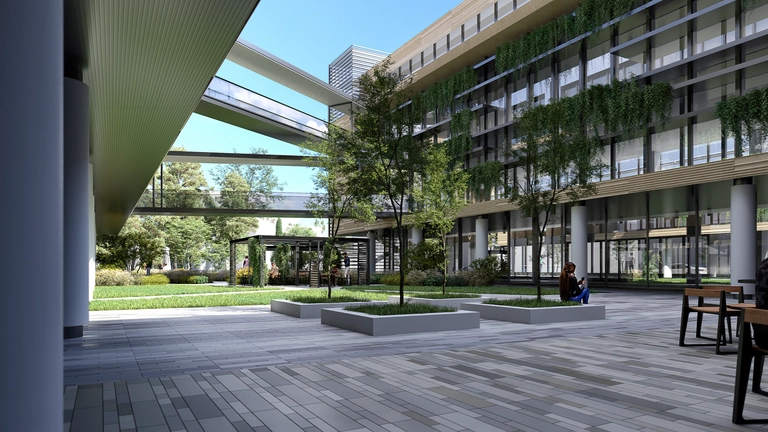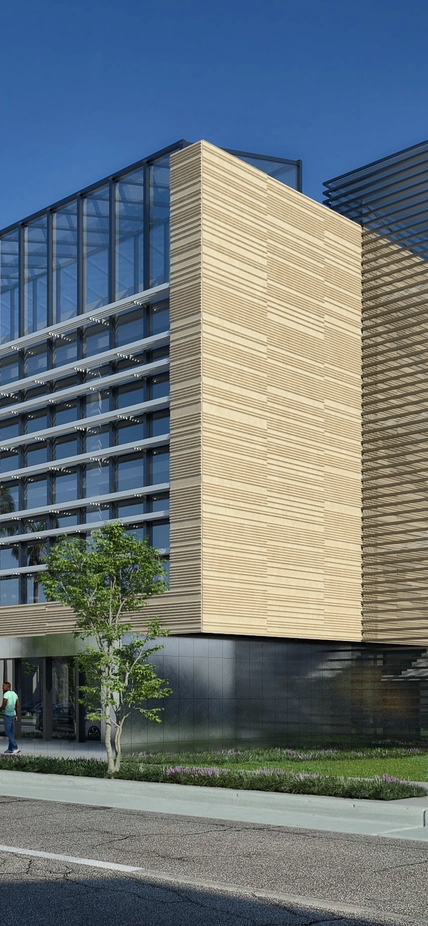Pasadena, CA—The state of California designated $20 million in its 2023 budget to help fund a new state-of-the-art Carnegie research facility in Pasadena where scientists will cross disciplinary boundaries to tackle the greatest climate challenges facing humanity today.
Representing a proactive investment in the fight against climate change, the 135,000-square-foot structure is designed to house 200 new and relocated staff who will comprise Carnegie’s newly launched Division of Biosphere Sciences and Engineering. There, a diverse array of experts will draw on Carnegie’s long-standing expertise in exploring the natural world across scales to probe the intersection of climate, ecosystem dynamics, and resilience.
“California is leading the world in our efforts to combat climate change, with bold action to cut pollution, clean our air, and develop clean energy solutions,” said Governor Gavin Newsom. “Scientific research is foundational to advancing these goals, protecting our communities, and promoting a sustainable future for California.”
State Senator Anthony J. Portantino, who represents Pasadena, played a leading role in advancing the new research campus.

“Investing in this new facility is the latest example of California’s ongoing leadership on the issue of global warming,” concluded Senator Portantino. “I’m proud to have played a role in bringing this new expertise to our area, where we remain committed to understanding and mitigating climate change.”
Carnegie scientists’ hallmark boldness, creativity, and insatiable curiosity will be necessary to mitigate an environmental crisis. By providing our researchers with the cutting-edge facility that they need to pursue essential questions about our world, Carnegie is positioned to make a major impact in the fight against climate change.
“Carnegie scientists seek to understand some of the most pressing challenges that face Californians today, including agricultural productivity, biodiversity, drought, water quality, and sustainable energy,” said President Eric D. Isaacs. “We are grateful to the state of California, Governor Newsom, and Senator Portantino for this recognition of the power of basic science research to help improve human lives.”
Carnegie’s new facility will be adjacent to Caltech and provide new opportunities to build on decades of collaboration in astronomy and the physical sciences to advance a new approach to the life sciences and the impacts of climate change. The Pasadena location will also enable Carnegie to expand upon existing research partnerships with the Jet Propulsion Laboratory and other universities in Southern California, making a powerful contribution to Los Angeles’ robust intellectual ecosystem.
“We are delighted by our growing collaboration with our Carnegie colleagues and new neighbors, some of whom are already working in temporary space on our campus, as we all look forward to the construction of a major new research center two blocks to our north,” said Caltech provost David A. Tirrell, the university’s William H. Corcoran Professor of Chemistry and Chemical Engineering and Carl and Shirley Larson Provostial Chair. “Caltech and Carnegie have for many years shared a commitment to addressing the most challenging and important problems in science and drawing our communities more closely together will create exciting opportunities to do things that neither institution could do on its own.”
